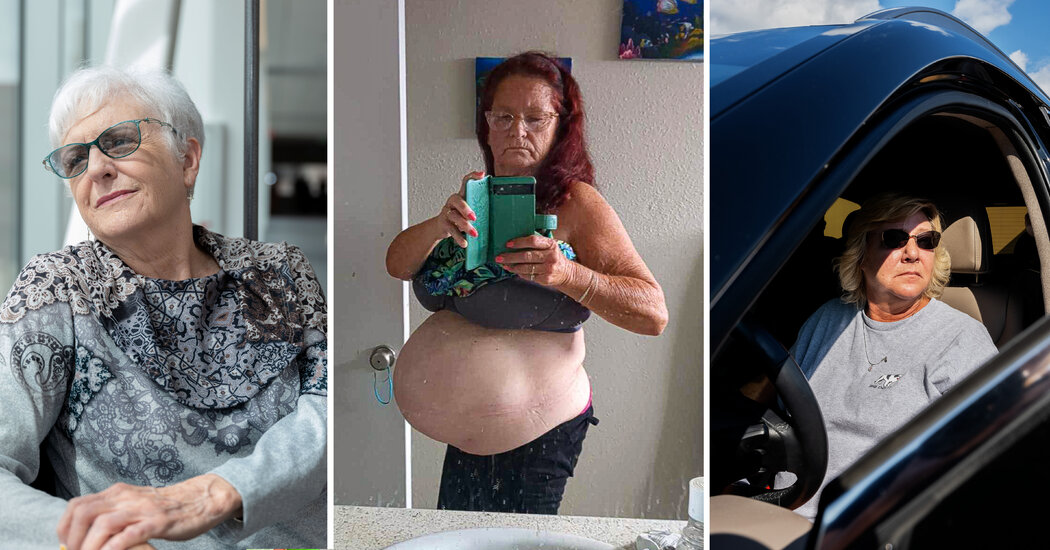News Feed › Discussions › Hernia Discussion › Who would risk patients safety using a self taught so high risk surgery just foy
-
Who would risk patients safety using a self taught so high risk surgery just foy
Posted by William Bryant on July 17, 2024 at 1:54 am<div>Hernia surgeons apparently would!</div>
Welcome to the world of hernia surgery where it seems surgeons are self teaching a high risk surgery to line their own pockets and will use it when not even needed….
https://www.nytimes.com/2023/10/30/health/hernia-surgery-component-separation.html
nytimes.com
How a Lucrative Surgery Took Off Online and Disfigured Patients
More surgeons are opting for a complicated hernia repair that they learned from videos on social media showing shoddy techniques.
William Bryant replied 1 year, 6 months ago 2 Members · 6 Replies -
6 Replies
-
It’s appalling isn’t it Good Intentions? Difficult to believe really. And the mesh manufacturer trying to teach via a video that’s wrong incredible.
Thanks for highlighting the aspects you did.
On a different topic, is there no chance of the forum either returning to previous format or having this one improved?
So many good posters seem to have disappeared.
-
There is a surgeon who has posted on the forum, who is now averaging over $400,000 per year, over the last three years, “consulting” for a device maker. It’s incredible. And the device results are unproven in the long-term. The device makers are running the hernia repair show.
-
I’m sure that there are parallels with mesh implantation in general.
“Earlier this year, Dr. Blatnik fixed a bad component separation surgery where the original surgeon had cut into the wrong muscle plane. The patient’s intestines were bulging out of her sides, another Mickey Mouse hernia.
Dr. Blatnik said he immediately recognized the name of the surgeon who had operated on the patient because that he had seen that surgeon teach component separation at a course sponsored by a device company. The surgeon has received more than $130,000 in payments over the past decade from companies including Intuitive and Bard, which manufacturers hernia mesh, The Times found. “
-
Thanks for the article William. It is about much more than just surgeons learning techniques on Facebook. It shows how many surgeons learn surgery “on the fly” with their early patients suffering the most damage.
“Dr. Rodolfo Oviedo performed the faulty surgery. Ms. Moran said the company had paid him $4,400 for it.
Dr. Oviedo acknowledged that he had made mistakes but said he had improved. “At some point I was doing it wrong, and nobody’s perfect,” he said in an interview in June, when he was the director of robotic education at Houston Methodist, a major hospital in Texas. He said it was only at some point after the surgery that he learned of his potentially serious errors.
Four months later, Dr. Oviedo offered a new explanation. He said that he had learned of his mistake in real time and had repaired the damage while the patient was still on the operating table. He said the patient, with whom he followed up for 18 months, had not experienced complications. (Dr. Oviedo left Houston Methodist for another job in July.) “
-
More –
“In June of 2021, W.L. Gore & Associates, a medical device company that makes surgical mesh used in hernia repairs, posted a video tutorial on its website. It promised to be a step-by-step guide to component separation surgery.
A surgeon narrated as he cut the patient’s abdominal muscles, releasing tissue so he could close a hernia. But he was operating in the wrong place and likely created a new hernia, according to four surgeons who reviewed the video.
“It absolutely trashed the abdominal wall,” said Jeffrey Blatnik, who directs the Washington University Hernia Center. “It was so offensive to the point that we reached out to the company and told them, ‘You guys need to take this down.’” “
-
Medicine for profit.
From your article –
“Other hernia surgeons, including Dr. Menor, learned component separation at events sponsored by medical device companies. Intuitive, for example, makes a $1.4 million robot known as the da Vinci that is sometimes used for component separations. Intuitive has paid for hundreds of hernia surgeons to attend short courses to learn how to use the machine for the procedure. The company makes money not only from selling the machines but also by charging some hospitals every time they use the robot.
…
In interviews with The Times, more than a dozen hernia surgeons pointed to another reason for the surging use of component separations: They earn doctors and hospitals more money. Medicare pays at least $2,450 for a component separation, compared with $345 for a simpler hernia repair. Private insurers, which cover a significant portion of hernia surgeries, typically pay two or three times what Medicare does.”
Log in to reply.

